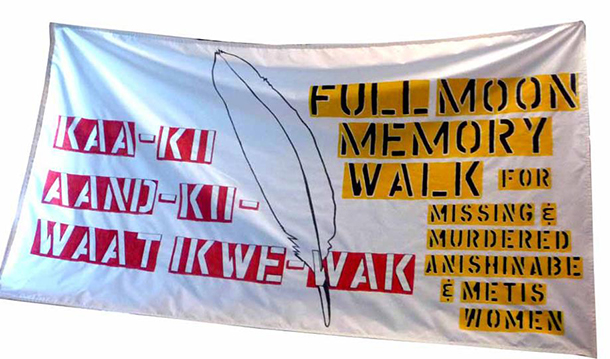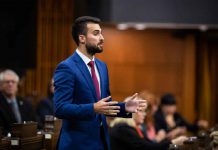
WINNIPEG – OPINION – Imagine if the front page story on the London Guardian, the New York Times and Pravda in Moscow was the same as the Winnipeg Free Press was last Monday. What would people around the world think of Canada if they saw pictures of a 15-year-old aboriginal girl and a middle-aged aboriginal man who had both been found dead in a river on the same day?
It is not an image that the federal government and Canadians in general want the world to see.
Unfortunately, those front page stories might be the only way that First Nations will convince the federal government to hold a public inquiry into missing and murdered aboriginal women in Canada.
Thousands of people (not “hundreds” as reported in the mainstream media) red, white, yellow and black, gathered at the Oodena at the Forks on Tuesday, August 19 to mourn and pay tribute to Faron Hall, a homeless aboriginal man who fell victim to an environment he had rescued two other human beings from in the past, and Tina Fontaine, whose teenage body was found concealed in a garbage bag. Those thousands of people will demand the federal government employ the only device the majority of Canadians feel will lead to a full understanding of why 1,200 aboriginal women have gone missing or murdered since 1980 and find ways to address this tragic situation.
But repeated requests for a public inquiry have been denied again and again.
Since this issue involves a specifically identified race of people, it can be considered a case of civil rights, and we only need look south of the border to find out how to get a federal government to do what people want it to.
Back in the early 1960s, black people in the United States were being victimized by poverty and murder. Despite marches like we saw in Winnipeg, blacks did not have an ally in the federal government because the Kennedy brothers, John and Robert, were more interested in being global statesman and dealing with things like the cold war.
It was only when their efforts were undermined by foreign leaders holding up headlines of freedom riders being beaten while their bus burned, the skin of teenage black kids being torn off by water hoses, and black people marching under the simple slogan “I am a man” that the Kennedy’s realized their credibility as world leaders depended on how they took care of their own citizens at home.
The fodder for detractors continues today as Iran, Iraq, Egypt, Syria, Russia and China, as well as Amnesty International, have been quick to reprimand the United States for what is happening in Ferguson, Missouri where a white police officer killed an unarmed black teenager.
Prime Minister Stephen Harper and Foreign Affairs Minister John Baird have been highly outspoken on the world stage about the crises in Israel and Ukraine. The weight of their words goes up and down with the level of Canada’s image abroad. Harper wants to be taken seriously when he talks about human rights but that becomes a lot more difficult when Russia and Hamas can point to problems in Canada like the murder of over a thousand indigenous women and the third-world conditions that First Nations live in.
Justice Minister Peter McKay has already responded to this latest incident by repeating the federal government’s position. No public inquiry. If First Nations leaders can’t get what they want despite the support of a majority of other Canadians (according to most recent polls), then they will be forced to direct their efforts toward the world stage where they seem to receive a more favourable reaction.
In 1961, when video of lynchings and black people being beaten down in the streets was being broadcast worldwide, the Kennedy brothers responded. Here in Canada, Indians had just been given the right to vote, but they needed a pass to leave their reserves and many were forced into residential schools where the history of abuse has just recently been fully exposed.
Canada was able to keep the treatment of First Nations people away from the global spotlight back then but if we want to be taken seriously now, this country must deal with tragedies like the situation of missing and murdered aboriginal women.
“There continues to be little to no projects or policies to engage this issue. It continues to be ignored by authorities,” said march organizer Niigaan Sinclair. “It has to stop.”
Don Marks is a Winnipeg-based writer.
Troy Media






